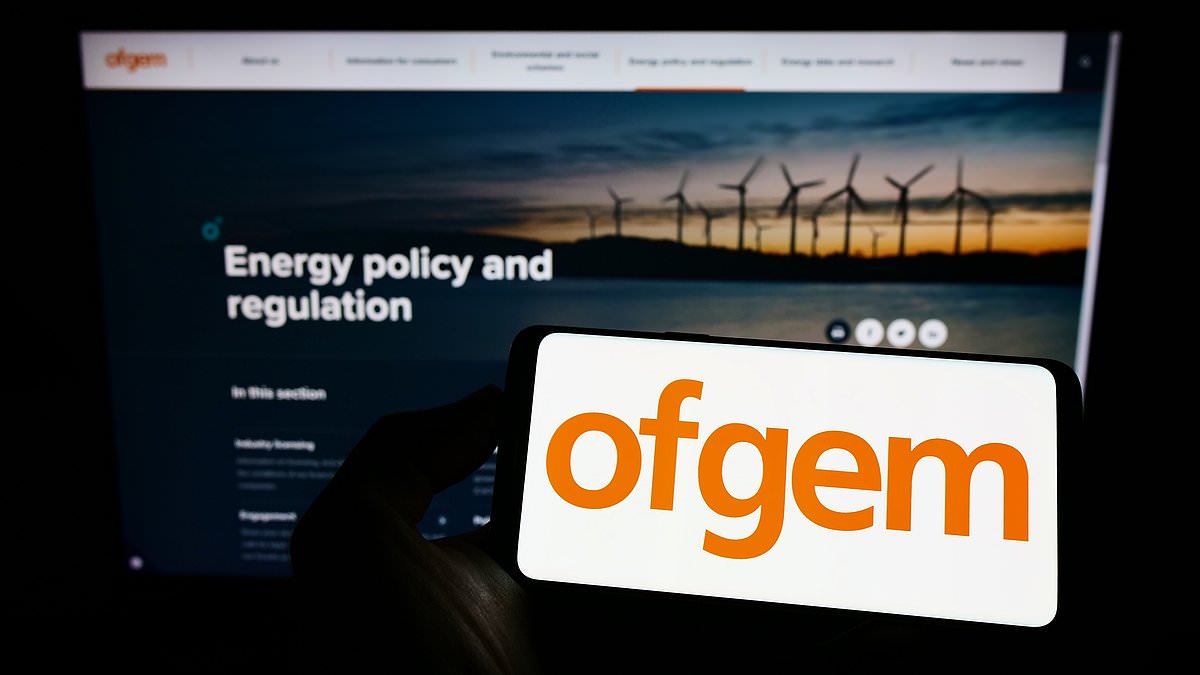Copyright dailymail

He told them so. Centrica boss Chris O'Shea warned in an interview last month with yours truly that a fresh wave of energy suppliers would go bust this winter and that at least one failure was imminent. His prediction was spot on. Tomato Energy – with 15,000 domestic customers and 8,000 business clients – collapsed days later. O'Shea thinks this is only the beginning, and he is almost certainly right. After the 2021–22 debacle, when a string of flimsy suppliers imploded during the post-Ukraine energy shock, regulator Ofgem introduced a new 'financial resilience' regime. On paper, it was supposed to ensure suppliers had enough capital to absorb future turmoil. In practice, it is being enforced so feebly that it is almost meaningless. The regulator won't even publish a list of which companies fail its capital rules. We only know two big suppliers have fallen short because the information seeped into the public domain. Instead of being open about the risks, Ofgem has left bill-payers – who ultimately foot the cost of failures – in the dark. One troubled firm is Ovo Energy, founded by serial entrepreneur Stephen Fitzpatrick, whose other ventures include the swanky Kensington Roof Gardens club and the flying-taxi outfit he founded, Vertical Aerospace – itself in choppy financial waters. Ovo's auditors waved a big red flag in its latest accounts, warning of 'material uncertainty' over its ability to continue as a going concern. The firm has drawn up a plan with Ofgem to patch up its capital position and is reported to be planning deep spending cuts to try to meet the Ofgem rules. Its CEO and finance chief quit last week. Yet the regulator has said nothing publicly. Without media reporting, consumers would have to trawl through obscure filings to discover that their supplier might be on shaky ground. When a supplier goes bust, Ofgem moves customers to another provider and protects their credit balances. That's welcome – but it isn't free. The cost of these rescues ends up on all our bills. Every household, then, has a direct interest in the financial strength of energy providers. Ofgem might believe the secrecy gives firms breathing space to repair their balance sheets. Sensible, perhaps, in theory – but in reality, the watchdog has veered too far towards protecting companies rather than consumers. The most extraordinary loophole is that a firm isn't even deemed to be in breach of capital rules so long as it has a 'recovery plan'. In other words, you don't actually need adequate capital – you just need a promise that you'll get some eventually. Firms with such plans are allowed to take on new customers and can use customer credit balances as working capital. Instead of ring-fencing household money – which would make cleaning up after failures easier and less costly – companies are allowed to use these balances as a quasi-piggy bank. Ofgem won't disclose which suppliers have missed its benchmarks, how large the shortfalls are, how long repairing their capital might take, or how credible the proposed remedies are. The watchdog is feather-bedding the very firms it is supposed to police, while leaving households exposed. Chris O'Shea warned Ofgem repeatedly ahead of the last spate of collapses to no avail and recent history seems to be repeating itself. Why Ofgem refuses to be more transparent is anyone's guess. Perhaps it prefers quiet diplomacy to public scrutiny. Perhaps it fears triggering needless panic and upheaval. But secrecy breeds suspicion – and it is never reassuring when regulators appear reluctant to reveal the truth.



